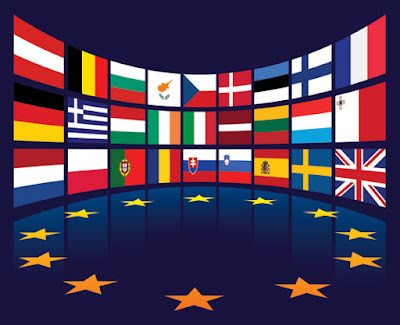you may
also come back from your time in another country with an ability to think more
complexly and creatively—and you may be professionally more successful as a
result.
These are
the conclusions of a growing body of research on the effects of study- and
work-abroad experiences. For example: A study led by
William Maddux, an associate professor of organizational behavior at INSEAD,
found that among students enrolled in an international MBA program, their
“multicultural engagement”—the extent to which they adapted to and learned
about new cultures—predicted how “integratively complex” their thinking became.
That is,
students who adopted an open and adaptive attitude toward foreign cultures
became more able to make connections among disparate ideas. The students’
multicultural engagement also predicted the number of job offers they received
after the program ended.
More
generally, writes Maddux,
“People who have international experience or identify with more than one
nationality are better problem solvers and display more creativity, our
research suggests. What’s more, we found that people with this international
experience are more likely to create new businesses and products and to be
promoted.”
Angela
Leung, an associate professor of psychology at Singapore Management University,
is another researcher who has investigated the psychological effects of living
abroad. She reports that
people with more experiences of different cultures are better able to generate
creative ideas and make unexpected links among concepts.
Like
Maddux, Leung found that the advantages of living abroad accrue to those who
are willing to adapt themselves to the ways of their host country: “The
serendipitous creative benefits resulting from multicultural experiences,” she
writes, “may depend on the extent to which individuals open themselves to
foreign cultures.” This openness, she adds, includes a tolerance for ambiguity
and open-endedness, a lack of closure and firm answers.
Could it
be that people who choose to study or work in other countries are already more
inclined to be complex and creative thinkers? David Therriault, associate
professor of educational psychology at the University of Florida, anticipated this possibility. He and his coauthors administered creative
thinking tasks to three groups of undergraduates: students who had studied
abroad, students who were planning to study abroad, and students who had not
and did not plan to study abroad. The students who had actually studied abroad
outperformed the two other groups in creative thinking.
Studying
or working in another country can make us better thinkers—more flexible,
creative, and complex—if we’re willing to adapt and learn from other cultures. As
the title of an article by
William Maddux advises: “When in Rome . . . Learn Why the Romans Do What They
Do.”
Brilliant readers, what do you think? Have you studied or worked
abroad, and did it change the way you think? Please share your thoughts below.




